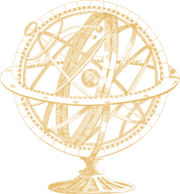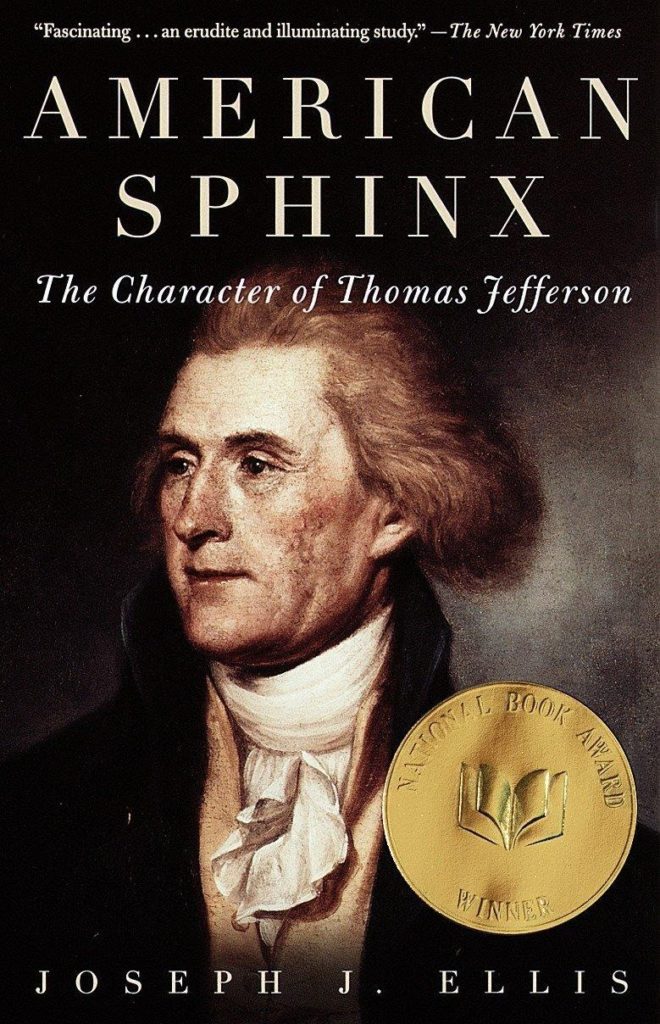“What signify a few lives lost in a century or two? The tree of liberty must be refreshed from time to time with the blood of patriots and tyrants. It is its natural manure.”
Thomas Jefferson
Finishing a 700-page book like John Adams, especially for a deliberate, plodding reader like myself, lends a certain momentum to a quest. It injects energy into the effort that only the satisfaction of seeing the back cover of a weighty tome can provide. The next task, of course, was sorting through the mountains of sycophancy and upbraiding that amass into the biographical canon of Thomas Jefferson.
I have always cast a suspicious eye towards the lauded reputation of our third president. I didn’t plan to invest time in the six-volume, thirty-three-years-to-create, Dumas Malone magnum opus that traced the arc of Jefferson’s entire life. I also didn’t want to sell TJ short, so I thought Joseph J Ellis’ American Sphinx: The Character of Thomas Jefferson would be a good choice. Ellis kicked off my quest with a quality biography of Washington. I figured he would do the same with another Virginian. For the most part, it worked out that way.
Conniving as he was brilliant, Thomas Jefferson was a man of contradictions. The very title of the book betrays this notion and throughout it I found a long list of flip-flopped opinions, incongruent statements with actions and obvious head scratchers. To wit, he wrote the most celebrated public declaration in American history but hated public speaking. The only speeches he ever gave as president were his two inaugural addresses. Even as floor debates were tearing his original Declaration apart and cutting entire swaths from the final text, Jefferson sat fuming in quiet agony and never took the floor to defend what he had written.
More drastic, and more impactful on the American populace, the man from Monticello detested the idea of a strong federal government, but during his presidency made some of the most dramatic overreaches of executive power in the history of the young republic. The Louisiana Purchase, the hallmark of Jefferson’s presidential legacy, was so questionably unconstitutional that TJ himself told confidantes that he was sure he needed an Amendment to make it legal. Yet, as soon as he heard Napoleon might back out of the deal, Jefferson made sure he secured the land outright, relying on his party majority in Congress to overlook any Federalist quibbles with it and not challenge it in the courts.
This was true again in 1807 when, trying to enforce his Embargo Act, Jefferson played chief regulator in New England. These maritime states, which relied upon British trade as their economic lifeline, tried to employ state’s rights arguments with the greatest champion of state’s rights in the country… only to find a deaf ear and a firm hand of federal regulation. It was remarkable how easily Jefferson would justify this to posterity: “A strict observance of the written laws is doubtless one of the high duties of a good citizen, but it is not the highest. The laws of necessity, of self-preservation, of saving our country when in danger, are of higher obligation. To lose our country by a scrupulous adherence to written law, would be to lose the law itself.” Because who needs to obey the law…
Jefferson’s most lauded speech is his first inaugural. The key takeaway was his petition that we put aside partisan divides for the good of the country. This, from one of the primary architects of the modern two-party system. The actions both preceding this speech and following it include a list of about-faces that would make Mitch McConnell blush. TJ was obsessed with paying down the federal debt, but his personal finances were in such disrepair that he died impoverished. He hated personal criticism, but he bankrolled newspaper hitmen that would relentlessly attack his political opponents, often with completely unfounded lies. He was a lifelong Anglophobe and Francophile, but as soon as he realized the French stood in the way of westward expansion, his bedfellows suddenly took on a cockney accent. And, of course, the most painfully obvious one: the man who proclaimed the equality of all men enslaved over 200 human beings in his lifetime, including his mistress and his own children with her, never freeing any of them even in his will.
Despite these contradictions, and maybe because of them, Jefferson remains very much in the pop culture of presidential history. His name and likeness adorn currency and monuments, high schools and American cities. He is a main character in Broadway’s Hamilton and even played by Nick Nolte in a forgettable movie about his time in France.
My feeling is that presidents are like quarterbacks and starting pitchers. They often get far too much praise when things go well and far too much shade when things do not. As happened with many presidents, I think Thomas Jefferson found himself in the right place at the right time. He inherited a world at peace, an all but dead opposition party and a silver platter with the chance to double the size of the nation on it. How much better or worse would the country have been if Aaron Burr was awarded the presidency instead in the disputed 1800 election? It’s impossible to say.
Thomas Jefferson remains one of my least favorite characters of the Revolutionary Era. He shied away from the defining conflict, not fighting a single day in the eight-year war. He was subversive within multiple administrations of which he was a part, favoring sectional feuds over national unity. Oh, and did I mention he kept HIS BIOLOGICAL CHILDREN AS SLAVES? I try hard not to apply present standards of decorum to radically different political times. But for me, when his legend became fact, I chose to let others print the legend.
Trivia
- Didn’t sign the Constitution (was in France as minister)
- About 1/4 of the original Declaration of Independence was cut by Congress, which burned him up!
- Did not fight in the Revolutionary War
- Founded the University of Virginia
- Died on the 4th of July, the 50th Anniversary of the Declaration of Independence and the same day as John Adams. Yes, seriously.
- Attended William & Mary
- Voracious reader and serious student
- Contributed a huge collection to the Library of Congress (mostly because he was in debt and needed to sell the books for cash)
Follow-up Reading
- The Hemingses Of Monticello: An American Family by Annette Gordon-Reed
- The Art of Power by John Meacham
- A Wilderness So Immense: The Louisiana Purchase and the Destiny of America by John Kukla

